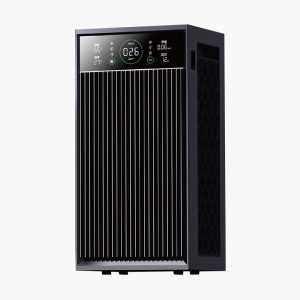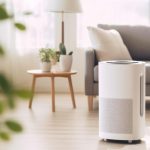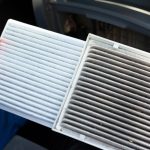Good air quality is essential for our health, making the right air filter choice more important than ever. With so many options available, how do you find the best one? The key is understanding the standards and quality measures top manufacturers follow. This guide breaks down these standards and what to look for when choosing an air filter.
Why Manufacturer Standards Matter
Air filters aren’t just appliances; they help keep indoor air clean by removing pollutants, allergens, and contaminants. The quality and reliability of a filter depend on the manufacturer’s adherence to industry standards. High standards ensure filters work well, last long, and are safe to use.
Key Standards in Air Filter Manufacturing
Knowing the main standards in air filter production helps you identify the best filters. Look for these certifications:
1. HEPA Certification
HEPA (High-Efficiency Particulate Air) filters can capture at least 99.97% of particles as small as 0.3 microns. They are effective against dust, pollen, pet dander, mold spores, and some bacteria and viruses. HEPA certification shows the filter offers excellent filtration performance.
2. ISO Standards
The International Organization for Standardization (ISO) sets strict quality and safety benchmarks. Manufacturers with ISO certification show they have consistent production processes, quality control, and reliable products. ISO certification signals trust and excellence.
3. ENERGY STAR Certification
Energy efficiency is crucial for air purifiers that run all the time. ENERGY STAR-certified filters meet strict energy efficiency standards set by the U.S. Environmental Protection Agency (EPA). These filters use less power, save on utility bills, and still maintain high air quality.
4. CADR Ratings
Clean Air Delivery Rate (CADR) measures how much filtered air an purifier delivers, showing its efficiency in removing specific pollutants. Higher CADR ratings mean faster and more effective cleaning. Reputable brands provide clear CADR ratings to help you choose based on your needs.
Quality Practices of Top Manufacturers
Leading air filter brands go beyond basic standards with advanced quality practices to ensure their products perform well and last long.
1. Thorough Testing
Top manufacturers rigorously test their filters in different conditions to confirm performance claims. They check particle removal, airflow, noise levels, and energy use to ensure filters work reliably in real-life situations.
2. Strong Quality Control
A solid quality control system maintains high standards during production. Top brands perform strict quality checks at every stage, from selecting materials to assembling the final product. This reduces defects and ensures each filter meets quality standards.
3. Innovation and Technology
The best manufacturers invest in research and development to include the latest technologies in their filters. Features like smart sensors, automatic filter replacement indicators, and advanced materials improve performance and convenience, setting top brands apart.
How to Choose the Right Air Filter
Consider these factors to find the best air filter for your needs:
1. Your Specific Needs
Identify the main pollutants you want to remove. For allergies, a HEPA filter is essential. For chemical fumes, choose filters with activated carbon. Knowing your air quality concerns helps you select an effective filter.
2. Filter Life and Maintenance
Look at how long the filter lasts and the maintenance required. High-quality filters usually last longer and need fewer replacements, saving you money and effort. Check the manufacturer’s guidelines for replacing filters and how easy it is to do so.
3. Energy Efficiency
Choose energy-efficient models, especially for devices that run continuously. ENERGY STAR-rated filters use less power without sacrificing performance, saving you money and reducing your environmental impact.
4. Certifications and Standards
Ensure the filter has relevant certifications like HEPA, ISO, and ENERGY STAR. These certifications indicate quality and reliability, giving you confidence in the product’s performance and safety.

5. Brand Reputation
Research the manufacturer’s reputation. Established brands with positive reviews and a history of reliable products are usually safer choices. Look for customer testimonials, expert reviews, and industry awards that highlight the brand’s commitment to quality.
Conclusion
Choosing the right air filter involves more than just looking at looks and price. It requires understanding the standards and quality measures that ensure effective and reliable performance. By focusing on certifications like HEPA and ISO, evaluating quality control practices, and considering your specific needs, you can make a well-informed decision that improves your indoor air quality.
Investing in a high-quality air filter benefits your health and well-being. Keep these standards and criteria in mind to select a filter that stands out and meets your air purification needs effectively.



